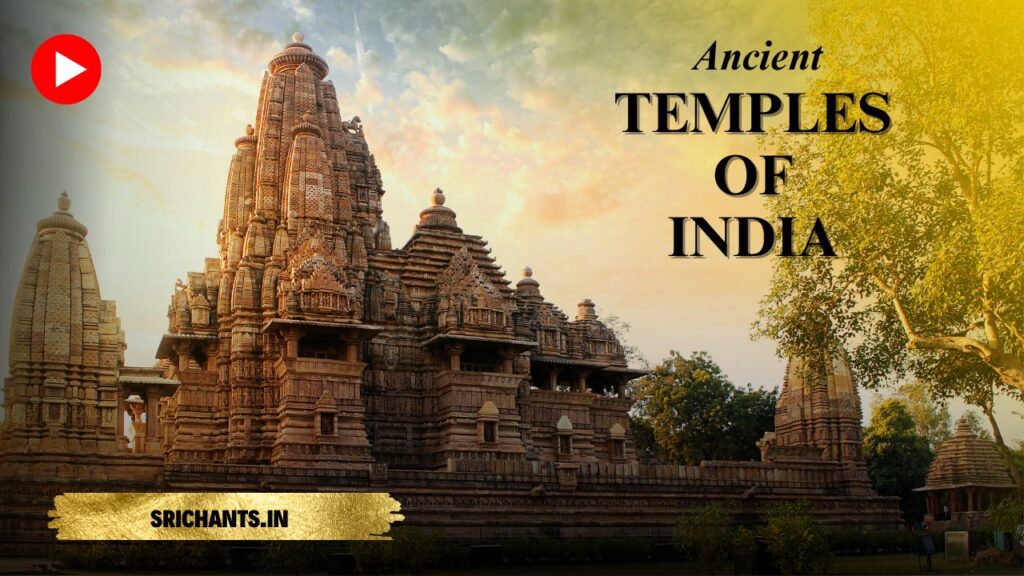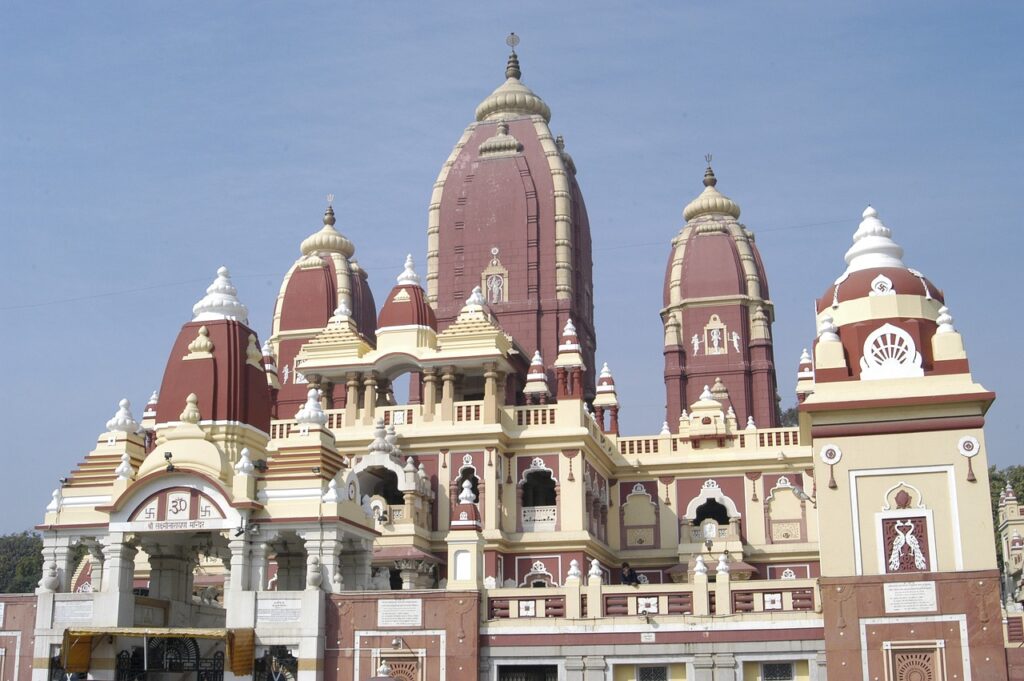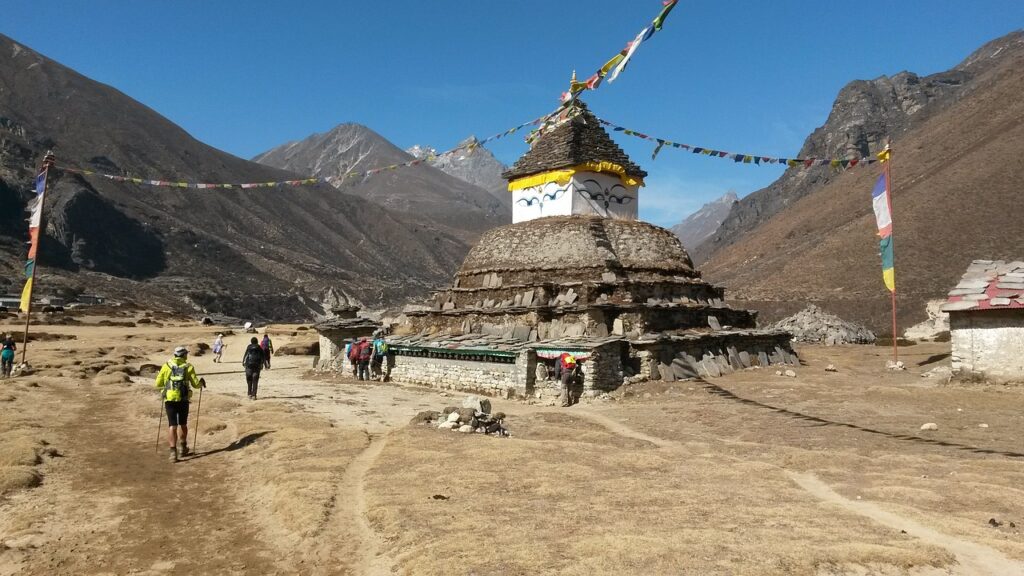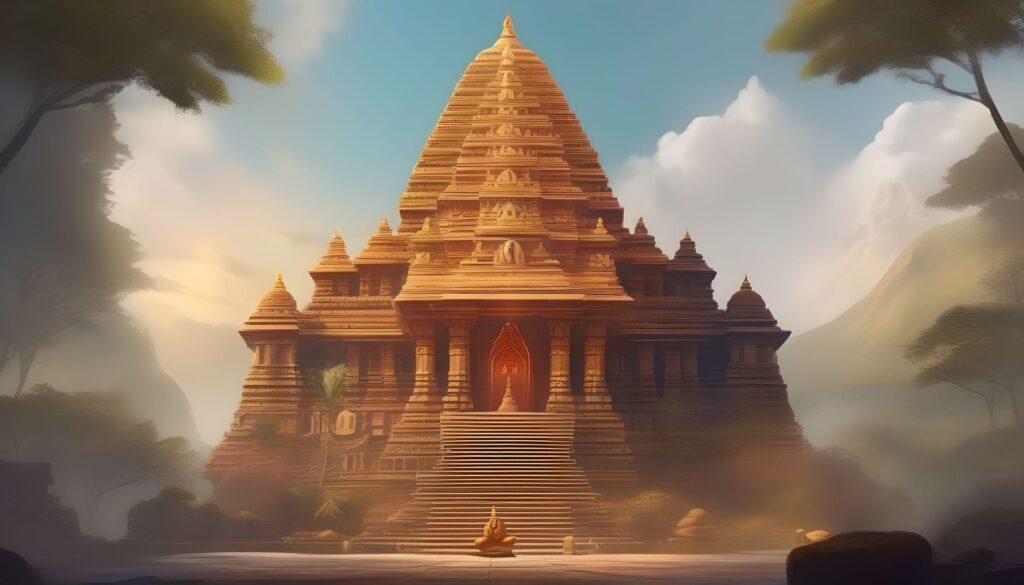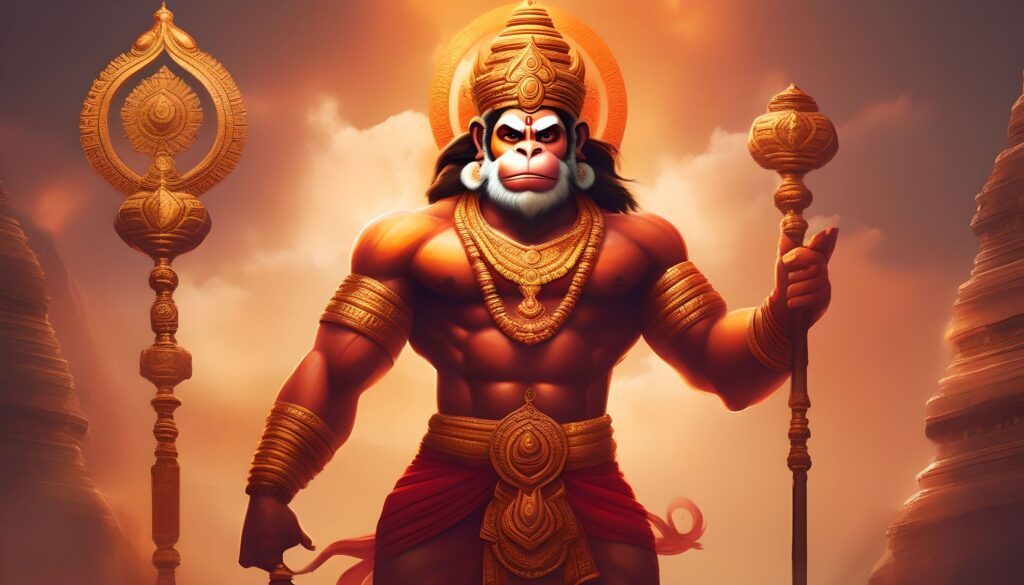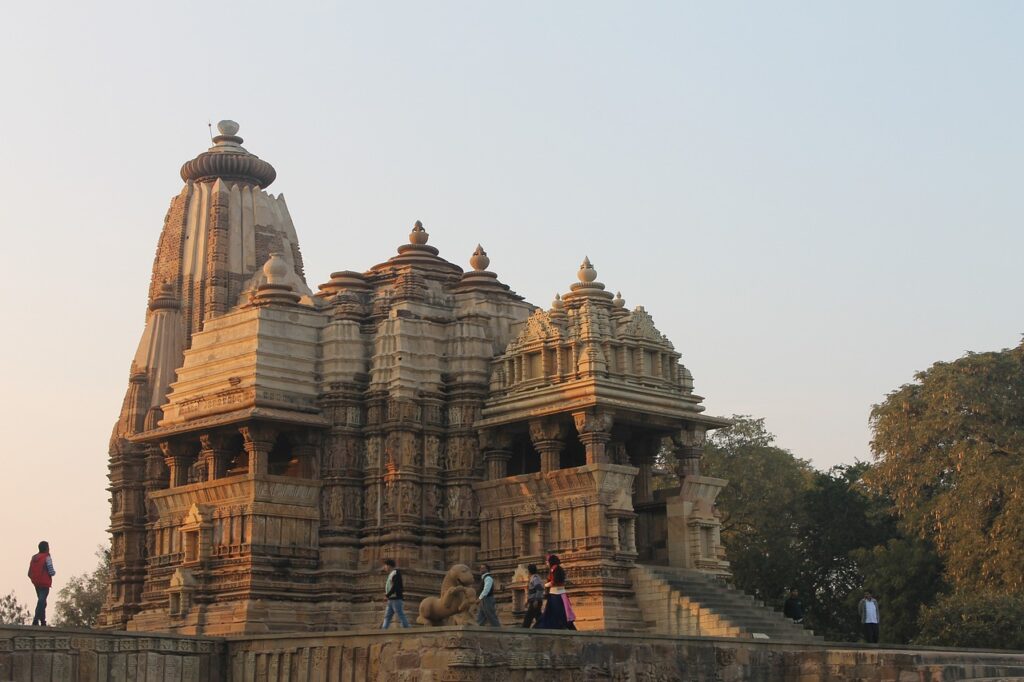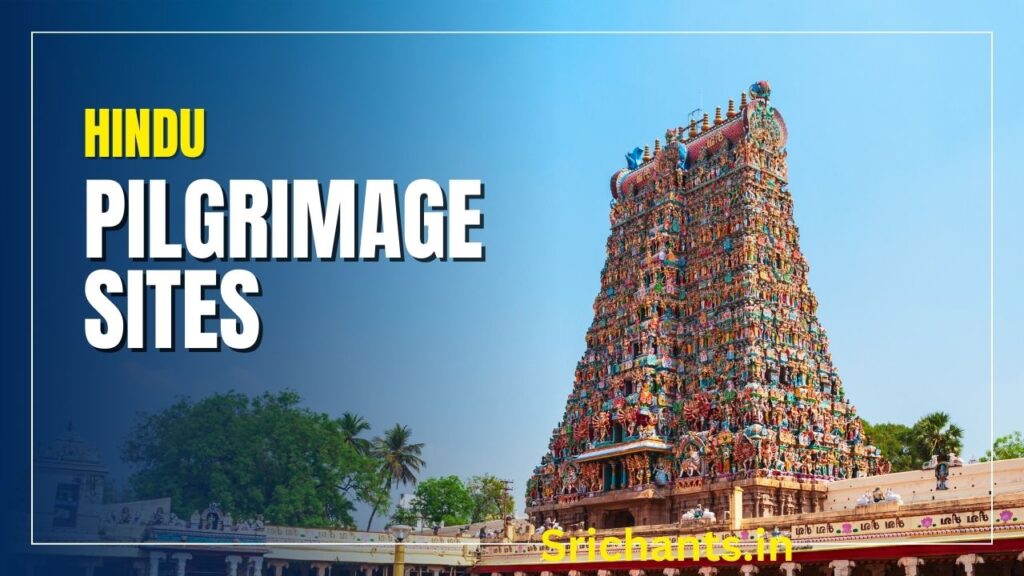Hindu Temples: Sacred Places in Hinduism
Introduction
Hinduism, being among the most ancient faiths globally, possesses a profound heritage of deity veneration within its temples. Hindu temples are revered locations where followers can establish a spiritual bond with the divine and beseech for favors. This exhaustive guide will delve into the historical background, religious significance, architectural features, rituals, and beliefs that are intrinsic to Hindu temples. Regardless of one’s religious affiliation or general curiosity about diverse cultures and traditions, this article will furnish a more profound comprehension of Hindu temples and their significance within the Hindu faith.
Table of Contents
- Introduction to Hindu Temples
- History of Temples
- Significance of Temples in Hinduism
- Locations and Sacred Sites
- Architecture of Hindu Temples
- The Sacred Elements of a Hindu Temple
- Rituals and Practices in Temples
- Temple Priests and their Roles
- Festivals and Celebrations in Temples
- Temples and Community Services
- Famous Hindu Temples around the World
- Conclusion
1. Introduction to Hindu Temples
Temples of the Hindu faith are spiritual and cultural hubs that have a significant impact on the lives of millions of Hindus around the globe. In contrast to other organized religions, Hinduism does not require members to visit a temple. Nevertheless, devotees hold temples in high regard because they offer a tangible environment conducive to approaching a spiritual union with the divine. Hindu temples are present in numerous regions across the globe, extending beyond India to encompass areas inhabited by Hindu communities.
2. History of Temples
The origins of Hindu temples can be identified in antiquity. During the Vedic period, temples did not exist in their contemporary form. Outside-the-home fire rituals constituted the predominant mode of worship. Temple construction for idolatry is a later development, although the precise chronology is unknown. Temples rose to prominence as revered locations where communities gathered to rekindle their spiritual forces.
3. Significance of Temples in Hinduism
Temple visits are not obligatory for adherents of Hinduism; nevertheless, these sacrosanct sites bear profound religious importance. Temples function as central locations for cultural and religious observances, encompassing devotional melodies, chanting, and religious discourse. Furthermore, they are linked to religious festivals and auspicious events. Temples serve as gathering places for devotees to seek divine blessings and foster a sense of community.
4. Locations and Sacred Sites
Hindu sanctuaries are situated in diverse geographical positions, including scenic riverbanks, elevated terrain, and coastal areas. The selection of site is frequently determined by the tranquility and aesthetic appeal of the environs. Numerous villages and cities in India, including Kanchipuram, Kanya Kumari, Amarnath, Ayodha, Brindavan, Banaras, and Kanchipuram, are renowned for their magnificent temples.
5. Architecture of Hindu Temples
The diverse array of architectural styles observed in Hindu temples is a reflection of the historical, cultural, and regional influences. Over the course of more than two millennia, Hindu temple architecture has developed and diversified. Temple structures may be rectangular, octagonal, or semicircular, among other configurations. Southern India is characterized by temple architecture that is distinct from that of northern India. Notwithstanding the variations, the majority of Hindu temples share certain design elements and characteristics.
5.1. The 6 Parts of a Hindu Temple
Hindu temples typically consist of six main parts, each serving a specific purpose:
- The Dome and Steeple: The dome, known as the ‘shikhara,’ represents the mythological Mount Meru, the highest peak. The shape of the dome can vary based on the region, and the steeple often resembles the trident of Lord Shiva.
- The Inner Chamber: The inner chamber, called the ‘garbhagriha’ or ‘womb-chamber,’ houses the main deity or idol (‘murti’). In most temples, only the temple priests are allowed inside the garbhagriha, while devotees offer their prayers from outside.
- The Temple Hall: Most large temples have a hall where devotees can sit, meditate, pray, or witness the rituals performed by the priests. This hall is also known as the ‘nata-mandira’ or the hall for temple-dancing, where devadasis (women dancers) used to perform dance rituals in ancient times. The walls of the hall often feature paintings depicting gods and goddesses.
- The Front Porch: The entrance area of the temple usually has a large metallic bell hanging from the ceiling. Devotees ring this bell while entering and leaving the temple, symbolizing their arrival and departure.
- The Reservoir: If the temple is not located near a natural water body, a reservoir of fresh water is built on the temple premises. This water is used for various rituals and to maintain cleanliness within the temple complex. Devotees may also take a ritual bath before entering the temple.
- The Walkway: Most temples have a walkway around the walls of the inner chamber, allowing devotees to circumambulate the deity as a sign of respect and devotion.
6. The Sacred Elements of a Hindu Temple
The intention of Hindu temple architecture is to establish a sacred and spiritual ambiance. A multitude of components housed within the temple complex contribute to the creation of this milieu. The principal deity or idol situated within the interior chamber is the central focus. The deity is revered as the epicenter of energy within the temple, symbolizing the divine presence. The utilization of sacred symbols, rituals, mantras, and the presence of clerics who lead daily worship and offer prayers on behalf of the devotees are additional sacred components.
7. Rituals and Practices in Temples
Rituals and practices are fundamental components of Hindu temple devotion. Prosecutors who have undergone extensive training and are knowledgeable of the scriptures and traditions conduct these rituals. Offering food, flowers, incense, and candles to the deities, performing aarti (a ceremony involving the wafting of lit lamps), and reciting mantras are all components of the daily rituals. Additionally, on momentous occasions, sacrosanct substances are used to anoint the deity during abhishekam and other special rites.
8. Temple Priests and their Roles
Temple ministers, who are also referred to as ‘pujaris,’ ‘purohits,’ and ‘pandas,’ are indispensable to the operation of Hindu temples. Their responsibilities encompass the facilitation of daily worship, execution of rituals, and provision of spiritual guidance to adherents. Although Brahmin or priestly caste priests have historically occupied temple positions, non-Brahmin priests also perform temple duties. Within Hinduism, distinct sects and cults may have their own ministers and rituals.
9. Festivals and Celebrations in Temples
Hindu sanctuaries serve as lively epicenters of jubilation throughout religious festivals. Diwali, Navaratri, and Shivaratri are among the major celebrations that draw substantial congregations to temples. Extensive rituals, devotional chanting, and processions adorned with chariots bearing the deities characterize these celebrations. During these celebratory periods, temples become centers of devotion and activity, fostering an ambiance characterized by elation, spirituality, and communal unity.
10. Temples and Community Services
In addition to their profound religious and spiritual importance, Hindu temples fulfill a vital function in the betterment of the community. Numerous temples support social welfare initiatives, organize medical camps, distribute free meals (prasad) to the indigent, and participate in educational programs, among other philanthropic endeavors. Temples frequently serve as hubs for theatrical, musical, and dance performances, thereby fostering art and cultural heritage.
11. Famous Hindu Temples around the World
Hinduism manifests itself on a global scale, with Hindu temples being situated in various regions across the Earth. These temples function as significant cultural and spiritual centers for the Hindu diaspora, fostering a profound sense of heritage and adherence to traditional practices. The BAPS Shri Swaminarayan Mandir in London, the Sri Mariamman Temple in Singapore, and the Murugan Temple in Batu Caves, Malaysia, are notable Hindu temples located outside of India.
12. Conclusion
Hindu temples are revered within the religion, serving as a sacred site where followers can establish a connection with the divine, solicit blessings, and participate in cultural and religious observances. Hindu temples, renowned for their exquisite architectural designs, profound historical significance, and enduring customs, offer an insight into the artistic and spiritual legacy of Hinduism. Regardless of one’s religious affiliation, an excursion to a Hindu temple can offer a captivating and enlightening encounter, permitting one to behold the profound devotion and spirituality that inhabit these revered abodes.
We trust that this comprehensive examination of Hindu temples has furnished you with valuable insights into the realm of Hinduism and its dynamic temple culture. May the sacred energies emanating from these locations bestow peace, harmony, and spiritual development upon your existence.
“The temple bell stops but I still hear the sound coming out of the flowers.” – Matsuo Basho
